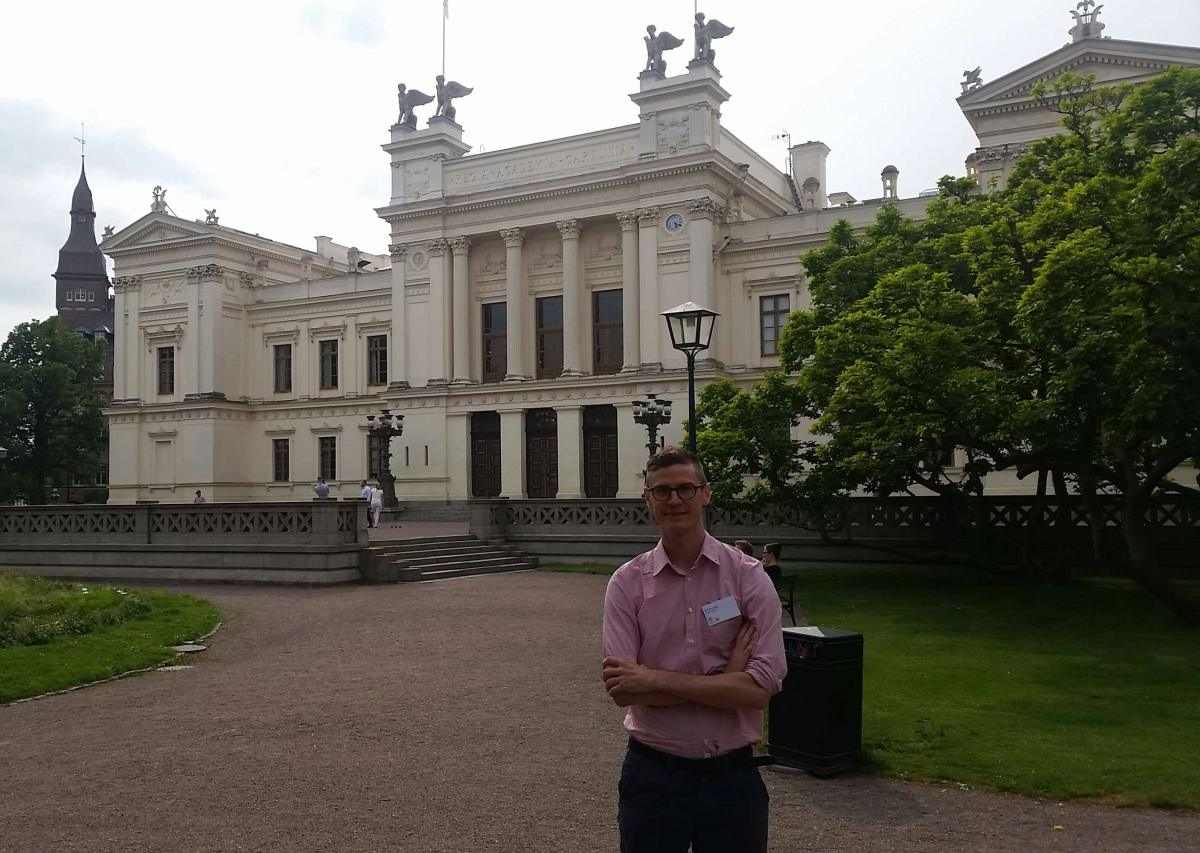LUCAS present at the 4th International Workshop on the Sharing Economy in Sweden
19 Jun 2017Our Economic theme PhD researcher, Phil Northall, recently travelled to the International Institute for Industrial Environmental Economics (IIIEE), part of Lund University, in Sweden, to engage with other academics in the field of the sharing economy, and to present his work on ‘categories and classifications in the sharing economy’.
Since 1994, the IIIEE has advanced knowledge on how to catalyse the transition to low-carbon and resource efficient economies, and has a mission to promote sustainable solutions pursued by public authorities and businesses – internationally, nationally and locally. Together with the Department of Urban Planning and Environment at KTH Royal Institute of Technology in Stockholm, they hosted the 4th International Workshop on the Sharing Economy from 15-16th June 2017.
The event saw 95 researchers and academics convening from all over the world, and from a broad range of disciplines, to explore the concepts, methods, impacts, operations, geographical contexts, actors, and governance of the sharing economy. Whilst the workshops included presentations as diverse as multidimensional trust, selling vs renting in sharing markets, and worker conditions, there was a strong focus on issues related to equity and social justice.
This focus may have been down to keynote speaker Prof. Julian Agyeman of Tufts University, Boston, creator of the concept of ‘just sustainability’ and co-author of ‘Sharing Cities: A Case for Truly Smart and Sustainable Cities’. His ‘just sustainability’ was an attempt to “re-centre equity and social justice in sustainability” and highlight that it is “not simply a green concern”. His challenge to “go beyond the data” and to conceive “what is possible, rather than just what is probable”, was taken on by all in attendance, and led to many of what he described as “tweetable moments”.
This was certainly taken on board by this researcher during his presentation. The title was ‘Categories and classifications in the sharing economy: a systematic review’, which was itself taken from another challenge, this one laid down by last year’s keynote speaker Rachel Botsman. It refers to the need to better categorise and classify our understanding of the terminology and concepts being used to define and group the sharing economy, and is an attempt to stop the widening of the term to include all on-demand service apps and the move away from core principles.
This systematic review collated 105 unique factors of the sharing economy, identified across 91 papers that reference the sharing economy. Through thematic mapping a socio-technical-economic spectrum emerged, which highlighted scalable access as central to the field. This was reiterated by other speakers in the ‘concepts’ workshop, who highlighted a move from an “excess economy to an access economy” (Curtis et al), and a “compartmentalisation of ownership” (Netter et al). Whilst discussions throughout the event noted a similar theme, and the need to secure the principles of the sharing economy, so that it is not misrepresented in policy and technology discussions.
This convergence on the understanding of the sharing economy is likely continue towards the 5th International Workshop on the Sharing Economy in Mannheim, Germany next year. But for this researcher, he will be experiencing sharing platforms first hand as he cycles back to Nottingham over the next two and a half weeks, staying with the sharing economy hosts of Warm Showers and Couchsurfing along the way.
Trevlig resa!
More information about Phil’s work is available on his website

Phil Northall at Lund University